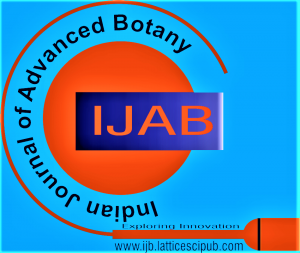![]()
Phyto Lectins-Wonder Biomolecules for the Benefit of Mankind
Shalini Saxena1, Navneet Kumar Yadav2
1Shalini Saxena, Lab of Cytogenetics Department of Botany, Bareilly college, Bareilly, UP, India.
2Navneet Kumar Yadav, Department of Chemistry, Bareilly college, Bareilly, UP, India.
Manuscript received on 09 January 2025 | First Revised Manuscript received on 04 February 2025 | Second Revised Manuscript received on 22 March 2025 | Manuscript Accepted on 15 April 2025 | Manuscript published on 30 April 2025 | PP: 18-26 | Volume-5 Issue-1, April 2025 | Retrieval Number: 100.1/ijb.A104205010425 | DOI: 10.54105/ijab.A1042.05010425
Open Access | Editorial and Publishing Policies | Cite | Zenodo | OJS | Indexing and Abstracting
© The Authors. Published by Lattice Science Publication (LSP). This is an open-access article under the CC-BY-NC-ND license (http://creativecommons.org/licenses/by-nc-nd/4.0/)
Abstract: The recent studies on different lectin and their agglutination activity have attained a distinct importance because of the wide range of applicability to problems of immune biology and clinical pathology. Now a days cancer is a fatal disease. It is wide occurrence in the people, especially in the labour class living in the polluted areas. The studies done on lectin shows that lectins are antitumor and anticancerous. So there may be correlation between increase or decrease in the lectin content and their hemagglutination activity with water pollution and in turn with their biological role. There may also be difference in their subunits and difference in their physiochemical properties due to water pollution. Reliable and economical quantification of micronutrients in diets of humans is critical component of successful epidemiological studies to establish relationships between dietary constituents and chronic disease. Legumes are one of the major dietary components consumed by populations worldwide. consumption of legumes is thought to play a major role in lowering breast and prostate cancer risks. Recently, it has been suggested that consumption of soyfoods may contribute to the relatively low rates of breast colon and prostrate cancers in countries such as China and Japan. Soyabeans contain a number of anti – carcinogens, and a recent National Cancer Institute workshop recommended that the role of soyfoods in cancer prevention be investigated.
Keywords: Immune Biology, Clinical Pathology, Anticancerous, Activity
Scope of the Article: Plant Science
